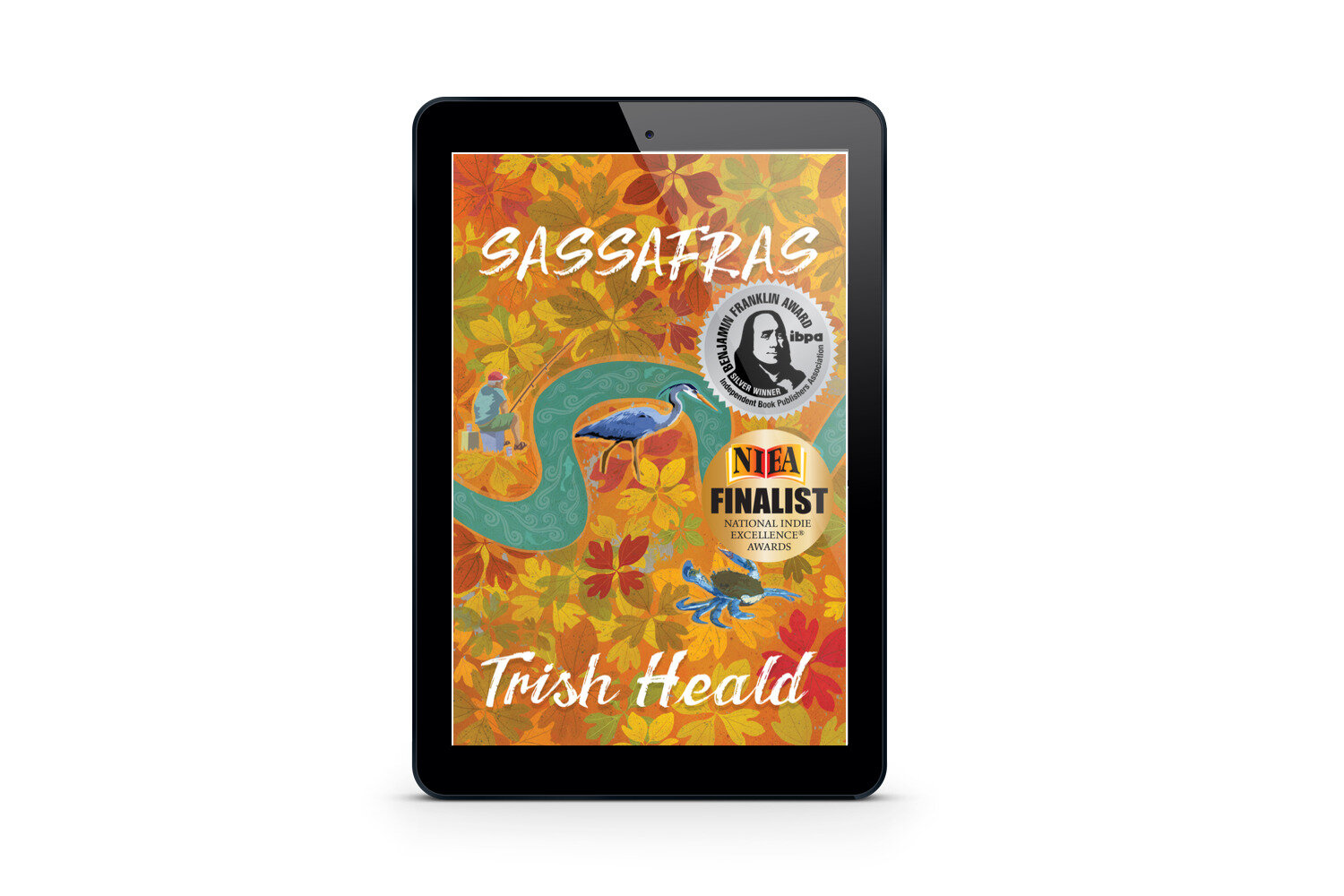
Help Trish Tell The World About Sassafras!
Bio
Trish Heald is a former business gal who turned her hand to fiction after an MA in Psychology revealed a passion for helping flawed characters instead of actual people. Trish is a free bird (i.e., empty nester) who loves living by the beach in SoCal. When she isn’t writing, reading, or beachcombing, she’s probably binge-watching Harlan Coben movies with a glass of Sauvignon Blanc. Sassafras is her debut novel.
Sample Q&A
Your book is set on the Sassafras River, a tributary of the Chesapeake Bay. Do you have a special connection with this area?
Yes! My father was in the Navy, so I grew up in many towns and states. One of the few things that stayed constant was my grandparents' summer cottage on the Sassafras River. Like Champs, the main character in my book, four generations of my family have lived, loved, and played there. I love having a place to visit every summer that holds memories of my childhood. It’s a very special, very beautiful river.
Are the characters and events in your book patterned after particular family members or things that happened there?
No, and yes. The story, characters, and some locations in Sassafras are fictional. But, like most authors, I draw from my personal experience with people, places, and events to craft relatable characters coping with real challenges. For example, some of Champs’s personality traits are drawn from my grandfather, but Champs is not my grandfather, and his story is not my grandfather’s story. Similarly, I remember crabbing and being frightened by the cow nose rays and the huge wasp nest in the tree, but what happened in that scene did not happen to me or anyone else in my family. I made it up.
Your protagonist is a 71-year-old male. Did you ever find it difficult to write in the voice of an older person of the opposite sex?
Not really. I know a lot of old guys! And I had a great source of knowledge in my uncle. I texted him all the time with snips of dialogue, asking “Would a man say this?” or “How would you say this?” or “What word would you use instead of ‘penis’?” Then I would adjust it to fit Champs’s personality or the energy I wanted in a scene.
Were there any characters in the book that you struggled with or were difficult to bring to life?
Just one: Mel. She kept coming to me with different names, backgrounds, features, personalities, and roles in the plot. One of the trickiest editing tasks was going through the book and making sure she was a consistent character because I had changed her up so many times. She had three names in the book at one point. I’m happy with how she turned out; in the end, she is one of my favorite characters.
Are you writing a sequel or prequel using the same characters on the Sassafras?
Who knows? I’m deep into writing my second novel, but it differs from Sassafras—although a similar style and tone carry through it. I can’t imagine a good story without family secrets, flawed characters, and a lot of humor. That’s how my real life is, so it makes sense that it comes out in my novels!
Blurb
Newly widowed Champs Noland hates Egret’s Pond, the retirement community he nicknamed Regret’s Pond.
Tired of empty condolences, “What to Expect When You’re Grieving” pamphlets, and casseroles delivered by do-gooding widows, he flees to his ramshackle summer cabin on the Sassafras River, bringing the golden urn containing Pat’s ashes with him.
His plan?
To spend his days idly fishing on his rusty old boat, Tetanus, and drinking beer. Alone.
But troubled waters await him.
Not only is Pat dead, but his daughter Laura has redecorated his beloved cabin with plans to rent it out as a “hair-being-bee.” His boat is gone, his beer fridge is filled with watermelon-flavored Perrier, and his plans for solitude are shattered by interfering neighbors, a notorious chicken-farming arsonist, and the arrival of his demanding adult children.
When he’s confronted with a shocking secret, Champs must decide if he’s going to dwell in the past and continue to hide behind his gruff exterior, or let go of the golden urn and embrace the uncertainty of living—and loving—again.
By turns poignant, humorous, and uplifting, Sassafras is a richly drawn story of the transformational power of loss, friendship, and family.














